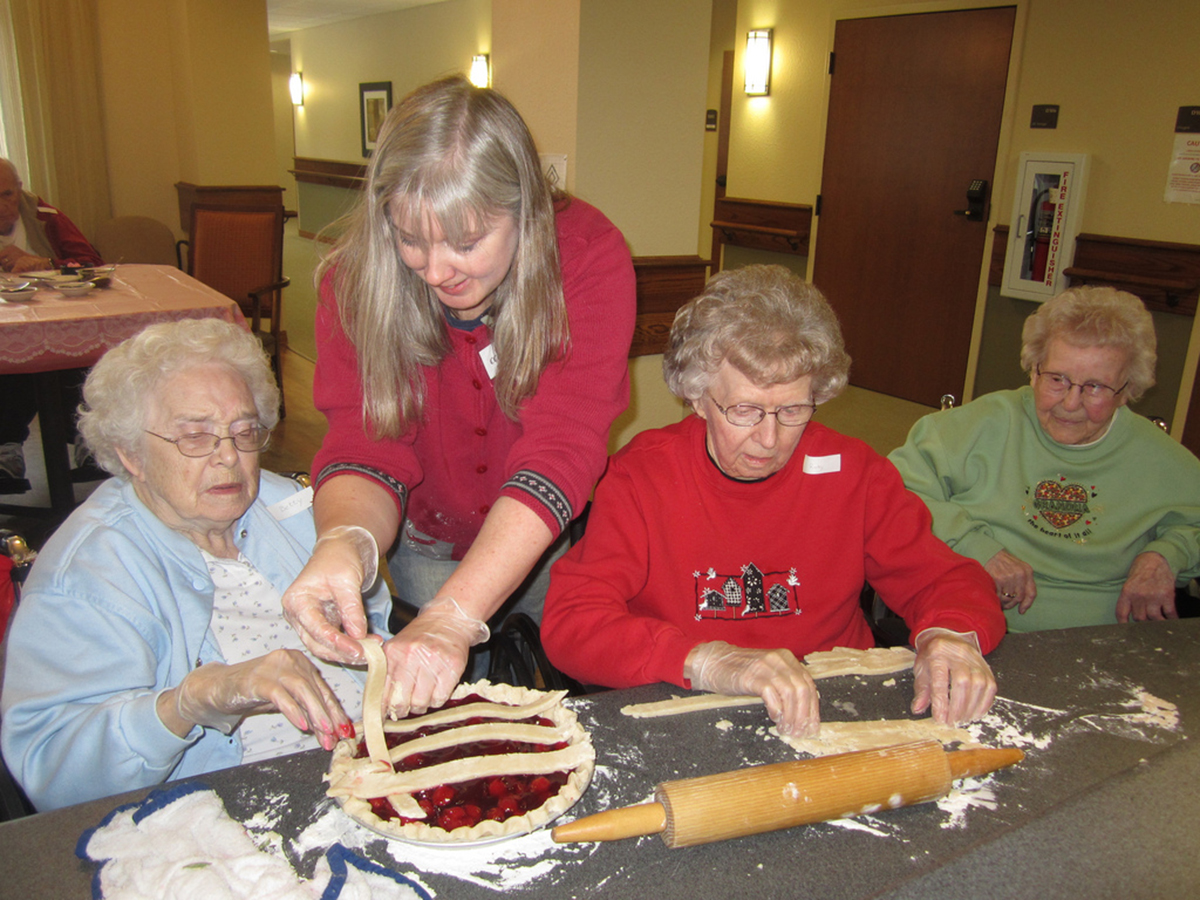Table of Contents
One of the things you notice in nursing homes that have Alzheimer's floors and non-Alzheimer's floors is that the mere hint of a dementia diagnosis induces immediate compliance with orders. Management by fear isn't optimal. There are better ways.
There are better ways to handle seniors in nursing care, assisted living, your own home, or their home than threatening them with a label of "crazy old person". There really are ways nursing home staff members can get the results they want without threats and intimidation (although sometimes assertive action finally is required by residents).

Here are some suggestions for caregivers and for families making sure their seniors are well taken care of.
- Calm caretakers tend to have calm patients. Speak to management about any nurse or attendant who flies off the handle, even once. If the senior in your life is still at home and you are the caregiver (bless you), then cultivate a calm attitude yourself.
- Make sure the home of the facility is quiet. Sudden loud noises are a problem for just about anyone who is under stress, not just people who have Alzheimer's. A quiet night-time environment is a must.
- Provide opportunities for social interaction. Even when seniors are "slowing down" and aren't quite as verbally fluent as they used to be, they still need to visit with other people. The ability to carry on a conversation with friends and even with strangers goes a long way toward staving off, at least slowing down, mental changes associated with aging.
- Talk about the past. A good way of understanding what happens to our ability to learn new things as we age is that we already have had so many experiences that there isn't as much mental "room" for new ones. It takes longer to integrate a new friendship, a new skill, or the ability to get around in a new environment when you are older than when you are younger.
- Avoid excessive stimulation in the new environment. Garish colors that capture attention aren't a good thing when you're having trouble remembering which room is yours. Overly solicitous social event workers (to put it more bluntly, people who just won't shut up and let you talk) can defeat the purpose of social interaction. This is far more likely to be a problem with an overly zealous nursing home social coordinator than it is with a friend or family member.
- Encourage contact with pets. In the nursing home, we were visited on Fridays by Rosie, the therapy poodle. Personally, I always had bigger dogs, like Great Pyrenees and Labradors. Poodles and I don't naturally connect. However, with her (real) pearls and designer sunglasses and haute couture, and her tendency to lick things, Rosie certainly was a break in the routine. She was just enough of a break to make a positive difference in mental functioning for the day.
Another overlooked aspect of successful elder care is planning for success.
If you have sent grandma to rehab after she had a knee replacement, for instance, keep in mind she will be moving around a lot more as she gets over the surgery. Be ready to deal with wandering and the increased risk of trips and falls when elders are more able to move around the house. Similarly, if you have been working hard to help an elder regain speech after a stroke, make sure there is someone to talk with. Be ready for changes that come with the improvements you work so hard for.
- Pam Belluck, "New Guidelines Allow Earlier Diagnosis of Alzheimer's," New York Times, 19 April 2011.
- Photo courtesy of Pictures by Ann via Flickr: www.flickr.com/photos/picturesbyann/12456887264
- Photo courtesy of Pictures by Ann via Flickr: www.flickr.com/photos/picturesbyann/11219713804


Your thoughts on this